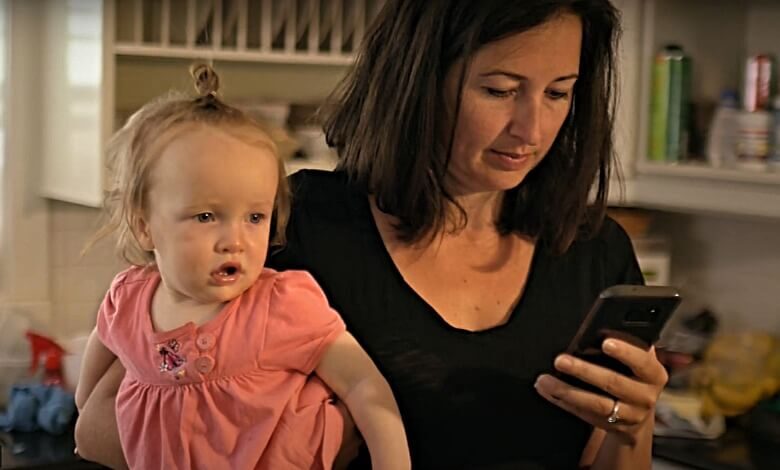
Director Jon Hyatt’s “Screened Out” sprung from the realization he’d been staring too much at his phone and not enough at his kids.
His wife recognized this quality about herself as well.
Early in the documentary, the two give sobering confessions where they admit to staring at their smart phones to a point of outright addiction. They’re not alone, of course, which Hyatt recognizes and takes his initially small-scale exploration on the road. He speaks with experts in technology and addiction, finding the two are profoundly connected by design.
This is all pretty provocative and entertaining, as it pertains to anyone who is reading this right now on their phone while a loved one is inches away being neglected. If that sounds like you, or anyone you know, then this documentary will resonate.
“Screened Out” is slickly made and highly polished for being Hyatt’s first feature-length documentary (he previously made short films). The filmmaking is crisp, the cinematography is lovely, and the occasional animated segments are as funny as they are cleverly constructed.
Little here counts as a bombshell.
Footage of Facebook co-founder Sean Parker admitting the social network was created with addicted qualities from the start is a part of public record. We get a peek at a rehab center for those with addictions to technology, something Werner Herzog showed us (in a far quirkier fashion, as can be expected from him) in his 2016 documentary, “Lo and Behold: Reveries of the Modern World.”
Mention is made a few times of how video games, like social networking, smart phones and internet advertising, have dopamine qualities that can lead to massively addictive behavior. A lot more should have been made of this, as what comes up is intriguing enough to have merited either specific focus or simply suggested another documentary offshoot on the topic.
Considering how a decade ago, any documentary or editorial on Steve Jobs or Mark Zuckerberg only painted them as visionaries who changed our lives for the better, it’s refreshing to see the darker context suggested here (though there isn’t enough of that, either).
Hyatt’s revealing how his home life has changed since he and his wife adjusted their smartphone viewing habits is helpful, as are the assertions of experts who simply instruct viewers to moderate their time staring at screens and recognize when we’re dumbly scrolling to kill time.
“Screened Out” is 71-minutes long, which feels just right, as it’s jam-packed with insight, talking points, visitations to varying locations and sobering observations from educated experts. I especially liked a stop at the museum dedicated to the history of personal home computers, which is a place I’d love to visit.
On the other hand, at just over an hour, this isn’t a definitive take on this far-reaching, extremely universal topic. The final observations are good, but no one steps up and comments on how it might be too late for any of us to fully unplug or if some households cannot even slightly modify their reliance on screen time.
Currently, with so many stuck inside their homes, staring at the world through their screens, trying to make sense of what is happening outside their neighborhood and everywhere around it, Hyatt’s documentary has an aspect that doesn’t date it, necessarily, but makes it feel incomplete.
Surely, life after the Coronavirus needs to be put into the conversation of how we rely too much on technology but, at the same time, that same technology is able to connect and assist so many.
“Screened Out’s” best quality is that it invites viewers to step outside of their normal routine, question what so many have taken for granted and, in a measured, informed way, consider if they’re simply looking too much at their glowing screens and not enough at the world around them.
It’s a valuable question, brought in a manner not of alarmist paranoia but parental concern. While it isn’t long enough to address all of the big issues it raises, Hyatt’s documentary touches on several penetrating, eye-opening aspects of techno-addiction that make it a must-see.
Three and a Half Stars
